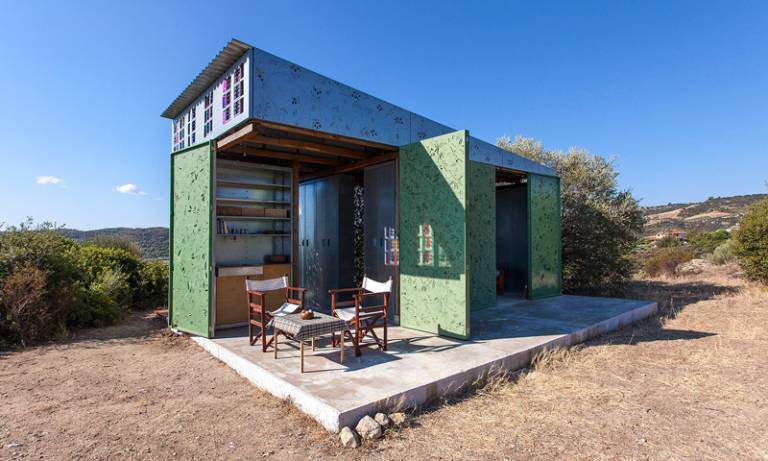Bartlett PhD student wins Architizer Award
3 April 2017
Bartlett PhD Student Eva Sopeoglou has been shortlisted for the Architizer A+Awards in New York with her Summer House in Halkidiki project.

Update: 12 April 2017
Eva Sopeoglou’s Summer House in Halkidiki, Greece has won the popular award in the ‘Concepts-Architecture +Light’ in the Architizer A+Awards, one of five winners in the category.
After winning the 2016 Surface Design Award in the Light and Surface Exterior category, Bartlett PhD student Eva Sopeoglou has been shortlisted for the Architizer A+Awards in New York with her Summer House in Halkidiki project. The project has made it to the final five projects competing to win the Architizer A+Awards for Architecture + Light.
Launched in 2012, the A+Awards celebrates the year’s best architecture and products. Entries are judged by more than 400 luminaries and thought-leaders from the fields of fashion, publishing, product design, real estate development and tech. This year's winners will be announced on 11 April 2017.
The Summer House in Halkidiki project is a low-maintenance weekend home located on a pristine olive grove hill overlooking the sea and beyond towards the famous monasteries of Mount Athos. The project is highly experimental and employs cutting-edge digital CAD/CAM technology in an innovative way, with the corridor connecting the spaces while aligning with the adjacent olive trees.
Sopeoglou’s Summer House in Halkidiki project forms part of an enquiry into sustainability and the provision for human comfort in architecture, in which she questions the definition of inside and outside inhabitable spaces. The project has already been awarded the ‘Best First Project by Young Architect 2012–2016’ in the 2017 DOMES International Review Awards in Athens.
Eva Sopeoglou
Eva Sopeoglou is a PhD student in Architectural Design at the Bartlett School of Architecture. Her research is in performative and environmental processes in architectural design and architecture. It spans into the history of design of spaces of comfort and the architectural vernacular of temporary spaces. More specifically, the research considers expanded notions of comfort, which include tectonic, aesthetic, environmental and social-cultural definitions of comfort and the implications in architectural design.
More Information
External links:
- Architizer blog: architizer.com/blog/eva-sopeoglou-summer-house/
- divisare.com/projects/342918-eva-sopeoglou-the-olive-tree-house
- archisearch.gr/architecture/summer-house-chalkidiki-eva-sopeoglou/
Image credit: Mariana Bisti, UCL Slade MFA graduate
 Close
Close

